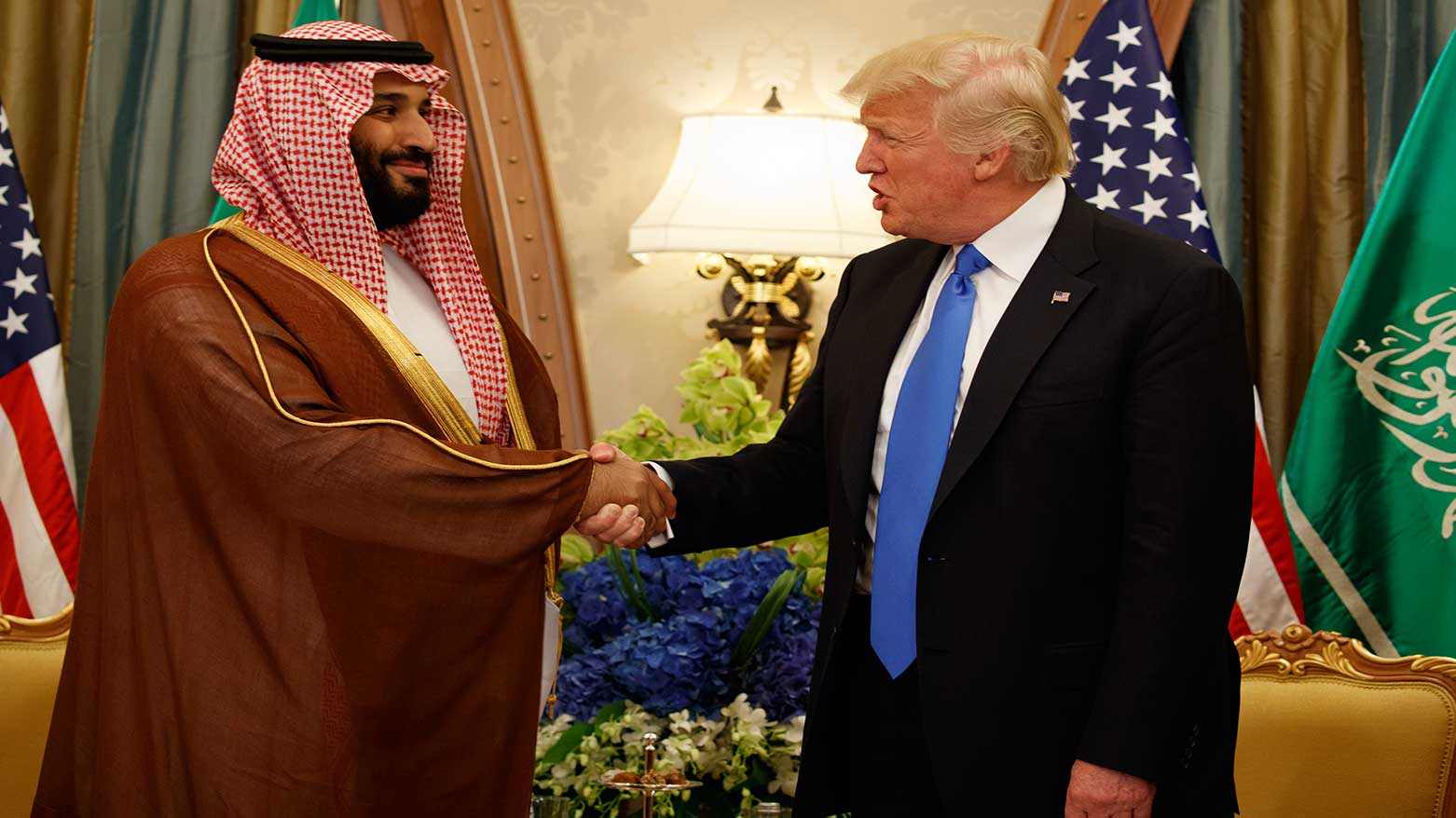Trump to ‘Strengthen Ties’ with Saudi Arabia, Qatar, UAE in Visit Next Month
Although Saudi Arabia is the focus of this diplomacy, it is broad and far-reaching, and it includes the Kurdistan Region, as well.

WASHINGTON DC, United States (Kurdistan 24) — U.S. President Donald Trump will visit Saudi Arabia, Qatar, and the United Arab Emirates (UAE) next month, White House Press Secretary Karoline Leavitt told reporters on Tuesday.
Trump’s trip to the three Gulf countries will take place between May 13 and May 16.
Originally, that trip was scheduled to be Trump’s first trip abroad, underscoring the importance of those countries, particularly Saudi Arabia, in the administration’s policy making.
That is a continuation of Trump’s approach from his first term in office. Then, Trump made his first trip abroad to Saudi Arabia.
However, with the death of Pope Francis, Trump his first trip overseas in his second term will be to Rome, where he will attend the pope’s funeral on Saturday.
In addition, Qatar’s Prime Minister, Mohammed bin Abdulrahman Al Thani, who is also his country’s Foreign Minister, is visiting Washington, and he met on Tuesday with Secretary of State Marco Rubio.
Strengthening Ties with Middle Eastern Allies
“The president looks to strengthen the ties between the United States and these countries” that he will be visiting next month, Leavitt said on Tuesday, as she discussed Trump’s upcoming trip.
Although Saudi Arabia is the focus of this diplomacy, it is broad and far-reaching, and it includes the Kurdistan Region as well.
Read More: PM Barzani and United States Reaffirm Strategic Ties
This diplomacy goes back to the first days of Trump’s second term. Saudi Arabia served as the site for the initial talks that the Trump administration held related to its mediation of the war between Russia and Ukraine.
That event marked the first of a series of meetings between senior U.S. and Saudi officials. It is now culminating in Trump’s visit to Saudi Arabia.
Thus, in mid-February, Rubio and National Security Council Advisor Michael Waltz travelled to Saudi Arabia, where they met with Russian officials. In that context, they also saw the Saudi Crown Prince and de facto ruler, Mohammed bin Salman.
Read More: US Officials Meet Saudi Leaders Ahead of Talks with Russia
Then, at the end of February, the Saudi Defense Minister, Khalid bin Salman, continued that diplomacy with a visit to Washington.
In March, Rubio and Waltz returned to Saudi Arabia to meet with Ukrainian officials. Again, they also met with Mohammed bin Salman.
Read More: Rubio, Waltz Meet in Jeddah with Saudi Crown Prince
And earlier this month, Saudi Foreign Minister Prince Faisal bin Farhan al-Saud visited Washington.
Read More: US Holds Series of Meetings with Arab Allies Ahead of Meeting with Iranians
In hindsight, those meetings have served to help prepare for Trump’s visit next month to Saudi Arabia, as well as to the much smaller Gulf states of Qatar and the UAE.
Qatari Prime Minister and Foreign Minister
Indeed, Mohammed bin Abdulrahman Al Thani, Qatar’s Prime Minister and Minister of Foreign Affairs, met with Rubio in Washington on Tuesday.
Qatar hosts the largest U.S. air base in the Middle East, Al Udeid. The British Royal Air Force is also located there.
In their meeting, Rubio and Al Thani “discussed the important strategic partnership” between their two countries, “including close security and economic cooperation and shared efforts to address regional challenges in Gaza, Lebanon, and Syria,” the U.S. read-out said.
They also pledged closer coordination, as they “reiterated both countries’ support for greater security and stability in the Middle East and emphasized the importance of increased collaboration on bilateral and regional issues.”